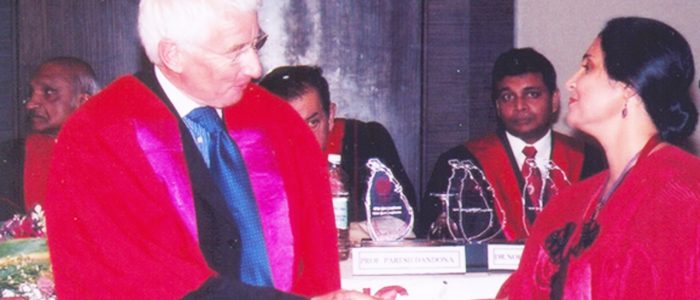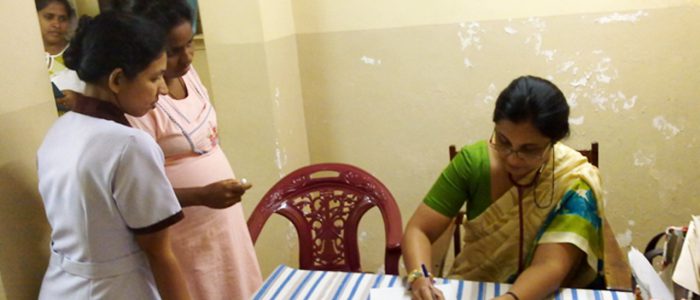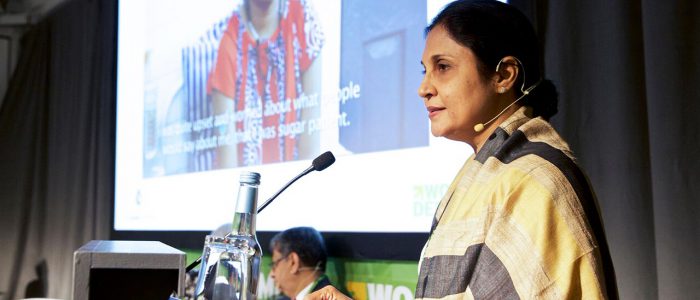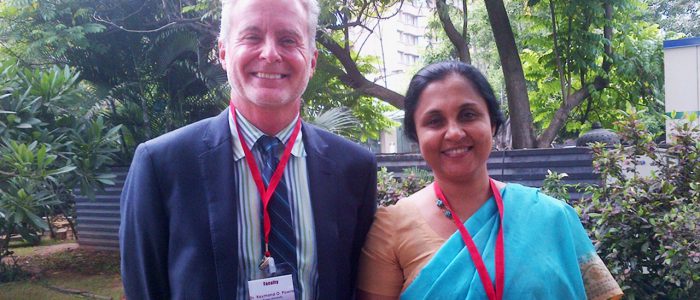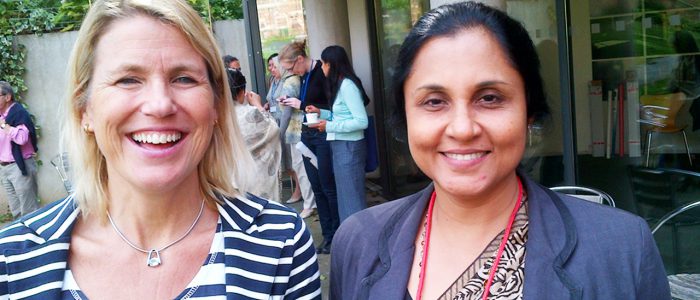Senior Professor Chandrika Wijeyaratne – A Guiding Light for the Next Generation of Researchers
The time is ripe for a transition to occur from passive consumption of existing factual knowledge to the creation of new knowledge through research
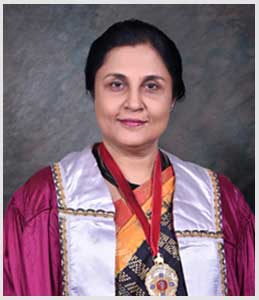 Research has played an integral role in the development of humanity. It is one of the few things that is fundamentally essential for the growth and maturation of any of the diverse fields ranging from social sciences to economical sciences to biomedical science. Much of what we know today, is the knowledge that was accumulated over many years from findings of previously conducted research. In such a backdrop, it is of paramount importance to continue conducting impactful research, and the universities must lead in this regard, being well equipped with highly qualified academics and having state of the art equipment.
Research has played an integral role in the development of humanity. It is one of the few things that is fundamentally essential for the growth and maturation of any of the diverse fields ranging from social sciences to economical sciences to biomedical science. Much of what we know today, is the knowledge that was accumulated over many years from findings of previously conducted research. In such a backdrop, it is of paramount importance to continue conducting impactful research, and the universities must lead in this regard, being well equipped with highly qualified academics and having state of the art equipment.
Senior Prof. Chandrika Wijeyaratne assumed duties as the Vice-Chancellor of the University of Colombo in April 2019, becoming the third academic from the Faculty of Medicine to hold the office of the Vice-Chancellor. The University of Colombo is well known for being the premier centre for undergraduate and postgraduate education and research in Sri Lanka, and under her leadership, it has been steadily progressing in all aspects, even upscaling its rankings in the Asian and global arenas.
In addition to her invaluable service to the development of the university, she carries out a tripartite job as a researcher, a teacher, and a clinician, and her daily schedule itself sets an excellent example of how to achieve a healthy work-life balance. She has played a lead role as an eminent researcher in the field of reproductive endocrinology, having published seminal papers in world-renowned journals. Whenever possible, she still collaborates with her previous teams who have worked on research into women’s health, conducting research mainly focussed on the polycystic ovary syndrome. Even amidst her hectic schedule, she somehow finds time to teach students, mainly postgraduate students in Endocrinology, since teaching is one of her true passions. However, she has had to sacrifice much of her role as a clinician when taking up her responsibilities as the vice-chancellor and she recollects her memories saying “I must say that I miss my role as a clinician, which is an aspect of my life that enabled me to have a very close relationship with my patients”.
The COVID-19 pandemic plunged the ordinary routines of many people into a chaotic mess, forcing everyone to work online. However, here again, she proved that no obstacle is too great to be overcome, by taking steps to ensure that almost all the activities of the university are carried out as they did in the pre-COVID era, the only difference being the utilisation of an online platform. So, it is quite correct to say that the University of Colombo is safe in the hands of a “digitally converted, medically qualified Vice-Chancellor”.
What made Prof. Chandrika interested in pursuing a career in reproductive endocrinology, is quite an interesting story and she noted here that “Your first mentors do play a role in helping you to find your way in your career”. From the time she was a junior doctor, she had a deep interest in women’s health. Therefore, she did her internship in obstetrics and gynaecology, following which she went on to do a post-graduate degree in Internal Medicine. It is during this time that she got involved in endocrinology for the first time. When she went overseas, she quite fortunately got an opportunity to take on a research-oriented job, in parallel with clinical commitments, which was directly related to endocrinology. There she got to contribute to a research project related to Atrial Natriuretic Peptide (ANP), which gave her an opportunity to link the biochemical and clinical aspects of endocrinology, with the basic physiological and pathological processes. She believes that this habit of linking up with the basic sciences is something that has to be recreated among the young generation of researchers as well, since it provides a more holistic view of the problem at hand. Following her overseas training, she returned to Sri Lanka and served as a Reproductive Medicine Endocrinologist in the Department of Obstetrics of the Colombo Medical Faculty, to look after the hormonal management of patients with infertility alongside medical disorders in pregnancy, and she says that “I have never regretted that decision to date”.
There is a lot further that we can go as a university and as a country if we are research oriented.
Research is a very important component of the academic process as it entails the creation of new knowledge. “There is a lot further that we can go as a university and as a country, if we are research-oriented” highlights Prof. Chandrika. As the Vice-Chancellor, she now strives to bring about change at a policy level to facilitate research. Her opinion is that even though students of separate faculties carry out their academic activities separately, they should realize that they are a part of a wider university community. Hence, the opportunities are limitless by way of cross-disciplinary collaborative research. “This change is something we cannot achieve overnight but is something I strive for through my role in research management, bringing about favourable policies and supporting research efforts” says Prof. Chandrika.
In addition to having a multidisciplinary approach when conducting research, we as researchers should have strong ties with statistics and data science. Only then would we be able to analyse the collected data properly and arrive at accurate conclusions. Even for researchers who may be working in diverse fields, the university ecosystem itself provides ample opportunities to establish collaborations with statisticians and data scientists. “In your future, you should be working with the data science block in the science faculty. Mathematics is very much needed and things like machine learning and big data would be the way forward even for biomedical research” says Prof. Chandrika.
To strive as a university, it is necessary to improve the research output of the university, and necessary funds are essential. However, as Prof. Chandrika points out “Money is needed but money is not everything”. There are many other aspects to be cognizant of when it comes to improving the research output of the university. Starting with the core principles of research, the research ethos should be reshaped into one which gives priority to novelty and impact, where research is carried out to fulfil a need, and not vice versa. This would naturally discourage replication of studies, when one tries to do something, which someone else has already done or break an existing study into smaller “bits and bobs”. Another strategy to boost the impact of research carried out under the university is to have a more holistic approach when planning out and conducting research projects. An excellent entry point for this would be to be mindful of the Sustainable Development Goals when planning out research, so that our research effort can be used to try and find solutions to problems that affect a large segment of our population.
It is the quality, not the quantity that matters in research. The papers and the metrics will automatically follow you.
In the current day and age, many metrics and indices that claim to measure the academic prowess of a researcher, have gained popularity. Therefore, it is very easy for researchers to get lost in a constant race to further their own ratings, and in the process, lose sight of the actual reason for conducting research. “It is the quality, not the quantity that matters in research. If you bring about some benefit to patients or to the community through your research, then you yourself would feel fulfilled” says Prof. Chandrika, from her decades of experience in conducting impactful research related to women’s health. Some of the most sought-after metrics such as the H-index may not actually measure the quality of the research. The ultimate goal in carrying out research should not be to produce as many papers as possible that would “beef up” your CV, but rather, to focus on how to enhance the quality and the impact of what one does. If research is done in this manner, “the papers and the metrics will automatically follow you” says Prof. Chandrika.
Even with all the benefits that research offers, it is quite surprising that many undergraduates find research to be a very monotonous and an unenjoyable task. From her decades of experience in teaching medical students, what Prof. Chandrika believes is that, if we are to find a solution to this problem, we should go down to its roots and try to inculcate an inquisitive mindset among the students. Students should be encouraged to search for knowledge rather than asking them to blindly accept what is presented to them by way of conventional lectures and textbooks. Education should follow a critical inquisitive approach where they are encouraged to search the literature relevant to what they are learning. This would enable them to realize how crucial research is for scientific progress, and at the same time would enable them to have a more deep-rooted understanding of the subject.
Furthermore, most students do not know why a research component was introduced into the undergraduate curriculum. Therefore, it would be rewarding in the long run, if some steps are taken to make students aware of as to what they are expected to learn through the undergraduate research projects, and also how they can apply the skills they gain through this. A system change of that nature in the university education system is much needed, and it would encourage students to engage in research much more productively, while changing the negative light with which many students look at research.
Over the past few centuries, humanity has witnessed an accelerated growth and development in many fields of life, and formal research has had a significant part to play in this. However, there will always be new problems popping up and it is up to researchers to come up with hypotheses and novel solutions to try and find a way to tackle them. There is no better example for this than the pandemic that we are currently living through. Life is very dynamic and unpredictable, and this nature has been further accentuated by the rapid developments in digital technology. But whatever new problems and challenges that come up, the advice Prof. Chandrika gives us is that “times will change, but you should never lose touch with the basic principles”.
Interviewed and compiled by;
Priyath Seneviratne
Minura Manchanayake
Upani Dehigahawatta

